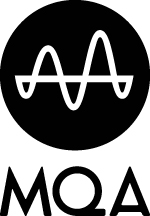Have you heard of MQA? It stands for Master Quality Authenticated, and its purpose is to deliver the same high-resolution master that was approved in the studio to the end listener. This technology, developed by Bob Stuart of Meridian and Peter Craven, addresses several issues of high-resolution digital audio. Airshow Mastering is an MQA content producer, and we’re equipped with the tools needed to encode MQA for streaming and CD releases.
What does MQA do?
First, MQA encodes high-resolution audio – up to 384k 24 Bit – into the size of a 48 or 44k 24 Bit file. This enables high res music streaming at low data rates.
Second, and most interesting for me, is the digital filtering employed by MQA – they call it “deblurring” – which corrects the ‘time smearing’ inherent in all digital converters. The ‘brick wall’ anti-aliasing filters used in all digital converters introduces phase shift to the audio; when that phase shift is corrected, the definition and imaging is improved,
sometimes dramatically.
Why should you consider MQA for your project?
MQA is a way to release music in high-resolution, without the compromises of lossy formats (MP3, AAC) or the limitations of CD. MQA has been adopted by many audiophile listeners and manufacturers, and music providers:
- Tidal offers a huge library of MQA-encoded music via their “HiFi” subscription tier. (And Tidal pays artists more than Spotify, Amazon, or Apple.)
- Nugs.net streams MQA content, including recordings of live shows.
- All three major label groups (Warner, Universal, Sony) and many independent labels have adopted MQA. A recent example: the recent 50th anniversary edition of the Doors’ “Waiting for the Sun” was released as an MQA CD by engineer Bruce Botnick.
Any disadvantages?
For the artist: To distribute music to the various online services – iTunes, Spotify, Tidal, Amazon, etc. – independent artists go through an aggregator like CD Baby or Tunecore. Currently, these two popular services don’t support or deliver 24 Bit content, including MQA, to streaming services. Until this changes, consider an MQA-CD release, and sales or streaming of MQA content on artists’ websites. MQA levies a $.10 fee on all MQA-CDs sold.
For the listener: In order to enjoy the full capabilities of MQA, including deblurring, and greater than 96k sample rates, an MQA-enabled Digital-to-Analog converter is required. There are many options available, at a range of prices. Certain models of LG Android phones offer MQA decoding, and Tidal recently released an iOS update that brings MQA to iPhones.
What does Airshow Mastering offer?
Airshow has MQA encoding capabilities, and we can tailor the MQA encoder settings specifically for your project, and deliver MQA files for download and streaming. Additionally, we can encode MQA onto an audio CD master so that CD listeners with an MQA DAC can enjoy high-resolution playback from an otherwise ordinary CD.
After kicking tires, and familiarizing ourselves with MQA and the workflow needed to produce MQA content, we are jumping in. The first MQA-CD release to come out of our studio is David Gans’ Fragile Thunder Trio album “One Afternoon Long Ago”, available in April 2019, which will also be available for streaming on Nugs.net.
MQA is the latest addition to Airshow’s high-resolution toolkit.
- In 1991 we were an early adopter of Sonic Solutions’ NoNoise.
- We added Pacific Microsonics HDCD converters in 1999 (and are still using them!).
- In the late nineties and early 2000s, when most engineers and producers were mixing to 16 Bit DAT, we loaned out Tascam DA45 24 Bit DAT machines
- Airshow was one of the first facilities equipped for DSD mastering and SACD authoring.
- We’re an authorized tape transfer facility for Plangent Processes.
Considering MQA for an upcoming release? Contact David Glasser at Airshow to discuss how to include MQA on your music. dave@airshowmastering.com.
For in-depth technical information, lists of MQA playback hardware and software, and streaming services, visit https://www.mqa.co.uk.

